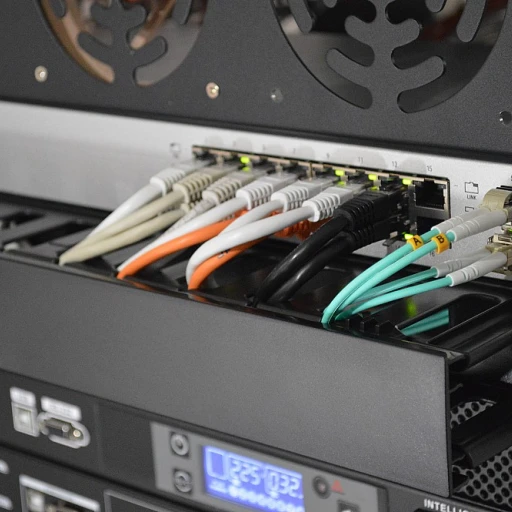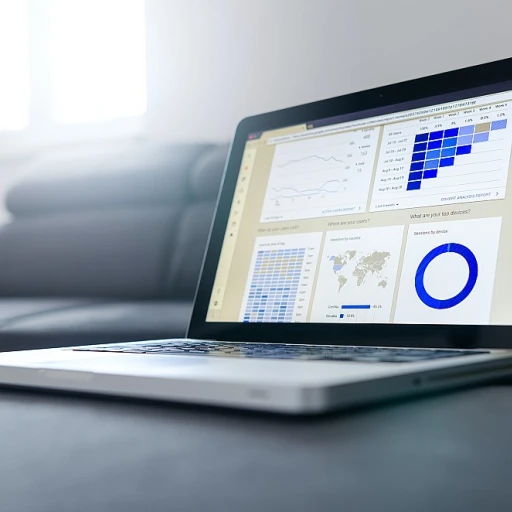
The Role of Software in Food Traceability
The Integral Role of Software in Ensuring Food Safety
In the rapidly evolving food industry, software plays a pivotal role in enhancing food traceability, ensuring compliance with regulations, and maintaining safety standards. The Food Safety Modernization Act (FSMA) and the FDA's final rule on food traceability have set stringent requirements for tracking food products throughout the supply chain. This has led to an increased reliance on advanced software solutions to manage traceability records and ensure compliance with these regulations.
Software solutions are designed to provide comprehensive access to traceability data, enabling stakeholders to monitor the entire supply chain effectively. This is crucial for risk assessment and maintaining the safety and quality of foods. By leveraging technology, companies can meet the additional traceability requirements set by the FSMA traceability rule, ensuring that all necessary data is accurately recorded and easily accessible.
Industry events, such as workshops and summits, often highlight the importance of software in food traceability. These gatherings provide a platform for professionals to discuss the latest innovations and strategies for implementing effective traceability systems. For instance, a recent summit on innovative software solutions showcased how digital tools are transforming the way companies manage their supply chains, ensuring compliance with safety modernization requirements.
As the industry continues to evolve, the role of software in food processing and traceability will only become more critical. Companies must stay informed about the latest developments and participate in webinars and meetings to keep up with the changing landscape. By doing so, they can ensure that their traceability systems are not only compliant with current regulations but also prepared for future challenges.
Emerging Technologies in Food Traceability
Revolutionizing Food Traceability with Cutting-Edge Technologies
The food traceability industry is witnessing a technological renaissance, driven by the need for enhanced safety and compliance with stringent regulations like the FDA's FSMA traceability rule. Emerging technologies are playing a pivotal role in transforming how the supply chain operates, ensuring that food safety and quality are maintained from farm to table.
One of the most promising innovations is the integration of blockchain technology. By providing a decentralized and immutable ledger, blockchain ensures that traceability records are accurate and tamper-proof. This transparency is crucial for meeting compliance requirements and gaining consumer trust. Additionally, blockchain can streamline the process of accessing traceability records, making it easier for stakeholders to verify the safety and quality of foods.
Another significant advancement is the use of IoT devices in food processing and supply chain management. These devices collect real-time data on various parameters, such as temperature and humidity, which are critical for maintaining food safety. By leveraging IoT, companies can perform risk assessments more effectively, ensuring that any deviations from safety standards are promptly addressed.
Artificial intelligence (AI) is also making waves in the industry. AI algorithms can analyze vast amounts of data to identify patterns and predict potential safety issues before they occur. This proactive approach not only enhances safety but also optimizes the supply chain by reducing waste and improving efficiency.
To stay updated on these innovations, industry professionals are encouraged to participate in events like webinars, workshops, and summits. These gatherings provide valuable insights into the latest technologies and offer opportunities to join discussions on best practices and compliance strategies.
For more information on how these technologies are shaping the future of food traceability, you can explore innovative software solutions that are transforming various industries.
Challenges in Implementing Traceability Software
Overcoming Barriers in Software Adoption
Implementing software solutions in the food traceability sector comes with its own set of challenges. Despite the clear benefits of enhanced traceability, many companies face hurdles that can impede the successful integration of these technologies. Understanding these challenges is crucial for businesses aiming to improve their traceability systems and ensure compliance with regulations such as the FDA's FSMA traceability rule.
One of the primary challenges is the complexity of the supply chain. The food industry involves numerous stakeholders, from farmers to retailers, each with their own systems and processes. Integrating a traceability software that can seamlessly interact with these diverse systems requires significant effort and coordination. Additionally, the need for real-time data access and sharing across the supply chain can be a daunting task, especially for smaller companies with limited resources.
Compliance with regulatory requirements is another significant hurdle. The FDA's final rule on food traceability and the FSMA traceability requirements demand rigorous record-keeping and data accuracy. Companies must ensure that their software solutions are capable of meeting these requirements, which often involves substantial investment in both technology and training. Participating in industry events, workshops, and webinars can provide valuable insights into best practices for achieving compliance.
Data security and privacy are also major concerns. With the increasing reliance on digital solutions, ensuring the safety and integrity of traceability records is paramount. Companies must implement robust security measures to protect sensitive information from breaches and unauthorized access. This is particularly important as the industry moves towards more advanced technologies, such as blockchain, which promise enhanced transparency but also introduce new security challenges.
Finally, the rapid pace of technological advancements can be overwhelming for companies trying to keep up. The industry is constantly evolving, with new innovations in food technology and safety modernization emerging regularly. Companies must stay informed about these developments to remain competitive and compliant. Engaging with industry summits and meetings can help businesses stay ahead of the curve and explore new opportunities for innovation.
For businesses looking to navigate these challenges, exploring business models that align with their strategic goals can provide a pathway to successful software integration. By understanding the unique needs of their operations and the specific requirements of the traceability rule, companies can make informed decisions that enhance their food safety and quality assurance efforts.
Case Studies: Successful Software Integration
Real-World Applications of Traceability Software
In the ever-evolving landscape of food traceability, successful software integration stands as a testament to the potential of technology in enhancing food safety and compliance. By examining real-world applications, we can glean insights into how traceability systems are transforming the industry.
One notable example is the implementation of traceability software in a major food processing company. This company faced challenges in meeting the FDA's FSMA traceability requirements, which necessitated comprehensive traceability records and compliance with the final rule. By adopting advanced traceability solutions, they were able to streamline their supply chain operations, ensuring that each step from farm to table was meticulously documented.
Another success story comes from a global food supplier that integrated traceability technology to enhance food safety and quality. This integration not only helped them comply with the traceability rule but also improved their risk assessment processes. By leveraging real-time data access, they could swiftly identify and address potential safety issues, thereby safeguarding their brand reputation.
Additionally, a workshop food manufacturer utilized traceability software to meet the additional traceability requirements set forth by industry regulations. This move not only ensured compliance but also provided them with a competitive edge by enhancing transparency and trust with their consumers.
These case studies underscore the importance of embracing technology in the food industry. As regulations continue to evolve, companies that proactively integrate traceability software will be better positioned to navigate the complexities of the supply chain, ensuring both compliance and consumer safety.
The Impact of Regulations on Software Development
Regulatory Influence on Software Development
The development of software in the food traceability industry is significantly shaped by regulatory frameworks. The FDA's Food Safety Modernization Act (FSMA) has introduced stringent requirements that software developers must consider. These regulations aim to enhance food safety and ensure that traceability records are maintained effectively across the supply chain.
One of the pivotal aspects of these regulations is the final rule on food traceability, which mandates comprehensive record-keeping and rapid access to traceability data. This rule requires software solutions to be robust enough to handle complex data sets and facilitate quick retrieval during food safety assessments. Compliance with these requirements is not just a legal obligation but a critical component of risk management in the industry.
Industry events such as workshops, webinars, and summits play a crucial role in helping stakeholders understand and implement these regulations. These events provide a platform for discussing the challenges and opportunities in meeting the traceability rule requirements. They also offer insights into the latest food technology advancements that can aid in compliance.
Moreover, the impact of these regulations extends beyond compliance. They drive innovation in software development, pushing companies to create solutions that not only meet current requirements but also anticipate future needs. As the industry evolves, software must adapt to new regulations and emerging technologies, ensuring that the supply chain remains transparent and efficient.
In conclusion, the influence of regulations on software development in the food traceability sector is profound. By aligning with the FSMA traceability requirements and participating in industry events, companies can ensure their software solutions are both compliant and innovative, ultimately enhancing food safety and quality.
Future Trends in Food Traceability Software
Anticipating Future Developments in Food Traceability Software
The future of food traceability software is poised to be shaped by a convergence of technological advancements and regulatory requirements. As the food industry continues to evolve, software solutions must adapt to meet new challenges and opportunities.
One of the key trends is the integration of blockchain technology. Blockchain offers a decentralized and secure way to record traceability records, ensuring transparency and trust across the supply chain. This technology can significantly enhance food safety by providing immutable records of each step in the food processing journey.
Artificial intelligence (AI) and machine learning are also expected to play a crucial role. These technologies can improve risk assessment by analyzing vast amounts of data to identify potential safety issues before they become critical. AI-driven analytics can help in predicting supply chain disruptions, thereby enhancing the overall safety and quality of foods.
With the increasing emphasis on compliance, software solutions must align with regulations such as the FDA's FSMA traceability rule. This includes meeting the requirements for additional traceability and ensuring that traceability records are easily accessible. The final rule requirements will likely drive innovation as companies strive to meet these standards efficiently.
Industry events, such as workshops and summits, will continue to be pivotal in shaping the future of food traceability software. These gatherings provide a platform for stakeholders to discuss challenges, share insights, and collaborate on developing solutions that meet the evolving needs of the industry.
As we look ahead, the role of software in food traceability will become even more critical. By embracing new technologies and adhering to regulatory requirements, the industry can ensure a safer and more transparent food supply chain.





-large-teaser.webp)









